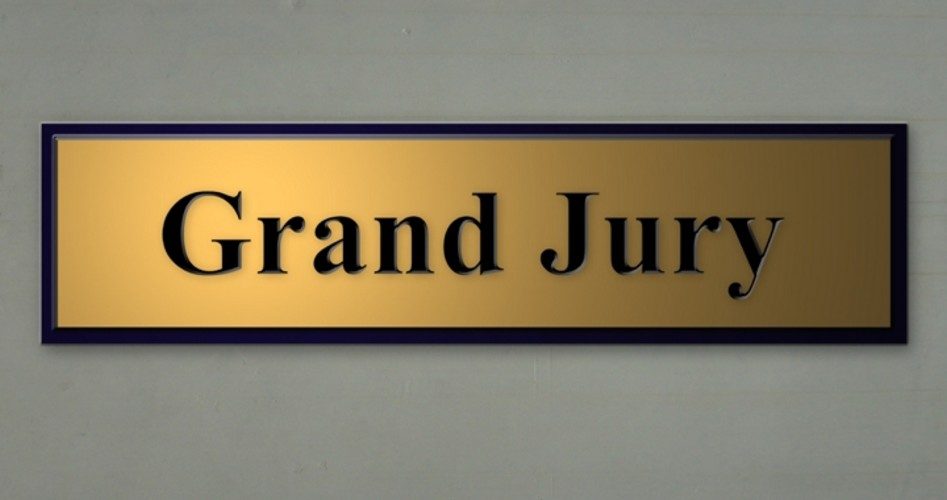
Grand juries are so easily manipulated by prosecutors that they would “indict a ham sandwich.” That was the assessment of Sol Wachtler, the former chief judge in New York, who even called for abolition of the grand jury. That view appears to have gained support with comments made by a witness in the grand jury investigating the alleged “collusion” between the Trump presidential campaign and the Russian government. The witness has been quoted in a Page Six story saying that the president and his team face a grand jury that “looks like a Bernie Sanders rally,” adding, “Maybe they found these jurors in central casting, or at a Black Lives Matter rally in Berkeley.”
Predictably, some liberals seized upon the Black Lives Matter remarks, dismissing the concerns as “racist comments.”
But Alan Dershowitz, a famed Harvard law professor, first raised concerns about the probable bias of the grand jury in August of last year, arguing on WABC Radio that the District of Columbia is so heavily Democrat that “It gives the prosecutor the power to indict,” noting that he “would have a jury pool very unfavorable to Trump and the Trump administration. So, it gives the prosecutor a tremendous tactical advantage.”
Dershowitz is a well-known Democrat, yet he has been a persistent critic of the attempts to attack President Donald Trump in the Russian “collusion” investigation. He stated,
“The District of Columbia, which is always solidly Democratic and has an ethnic and racial composition that might be very unfavorable to the Trump Administration, so I see the significance not so much that he impaneled the grand jury — you have to impanel the grand jury to get subpoena power — but where he impaneled it.”
The witness who referred to the grand jury as a Sanders rally reportedly said that 11 of the 20 jurors are African-Americans. “There was only one white male in the room, and he was the prosecutor.”
It would appear that the political make-up of D.C. confirms the witness’s accusations of political bias. Trump received a mere 4.1 percent of the vote there in 2016’s presidential election, with 90.9 percent of the vote going to his Democratic opponent, Hillary Clinton.
Even if the composition of the grand jury were more politically and racially balanced, historical precedent seems to confirm Judge Wachtler’s misgivings about the malleability of grand juries. A grand jury historically was seen as a check on prosecutors (King John of England was forced to include it in the Magna Carta of 1215), but if a prosecutor wants an indictment, he generally gets it from a grand jury. An indictment does not mean that a person is judged guilty in the judicial system, but rather that the person has been formally accused. An actual judgment of guilt “beyond reasonable doubt” is the role of a jury, and requires a unanimous verdict.
But even if a person is later acquitted (found not guilty) by a trial jury, the fact that a person has been indicted by a grand jury is enough to ruin that individual’s reputation. (In many minds the reference to a person as “indicted” for a crime is much the same as “convicted” for the crime.) So, even the constitutional protection found in the Fifth Amendment, “No person shall be held to answer for a capital, or otherwise infamous crime, unless on a presentment or indictment of a grand jury,” actually provides only a weak check on a prosecutor, especially in politically-charged cases such as the probe by Special Counsel Robert Mueller.
Despite concerns about the grand jury system, the Constitution specifically provides for them, so any actual abolition would require an amendment to the Constitution, which is highly unlikely. But Congress does have the ability to enact reforms to the use of the grand jury. Article III, Section 2 of the Constitution provides, “The trial of all crimes, except in cases of impeachment; shall be by jury; and such trials shall be held in the state where the said crimes shall have been committed; but when not committed within any state, the trial shall be at such place or places as the Congress may by law have directed.” (Emphasis added.)
Clearly then, Congress could, by law, move trials outside of Washington, D.C., where it is obvious that Republicans such as Trump are at the mercy of grand jury and regular trial jury compositions that are biased against them. And, of course, the flip side is also true: grand juries in the district are more likely to be sympathetic to Democrats accused of crimes.
If history is any guide, however, it is unlikely that Congress will do anything to address this problem, and grand juries in the nation’s capital will continue to look like Bernie Sanders rallies.
Photo: Rex_Wholster/iStock/Getty Images Plus



